Refugee crisis: For 350,000 Syrians, the move across the Turkish border has not brought the threat of violence to an end
Kim Sengupta finds that the presence of extremists, intelligence agencies and smugglers of people, arms, looted artefacts and oil, have made Turkish border towns like Gaziantep a place of illicit opportunities and danger
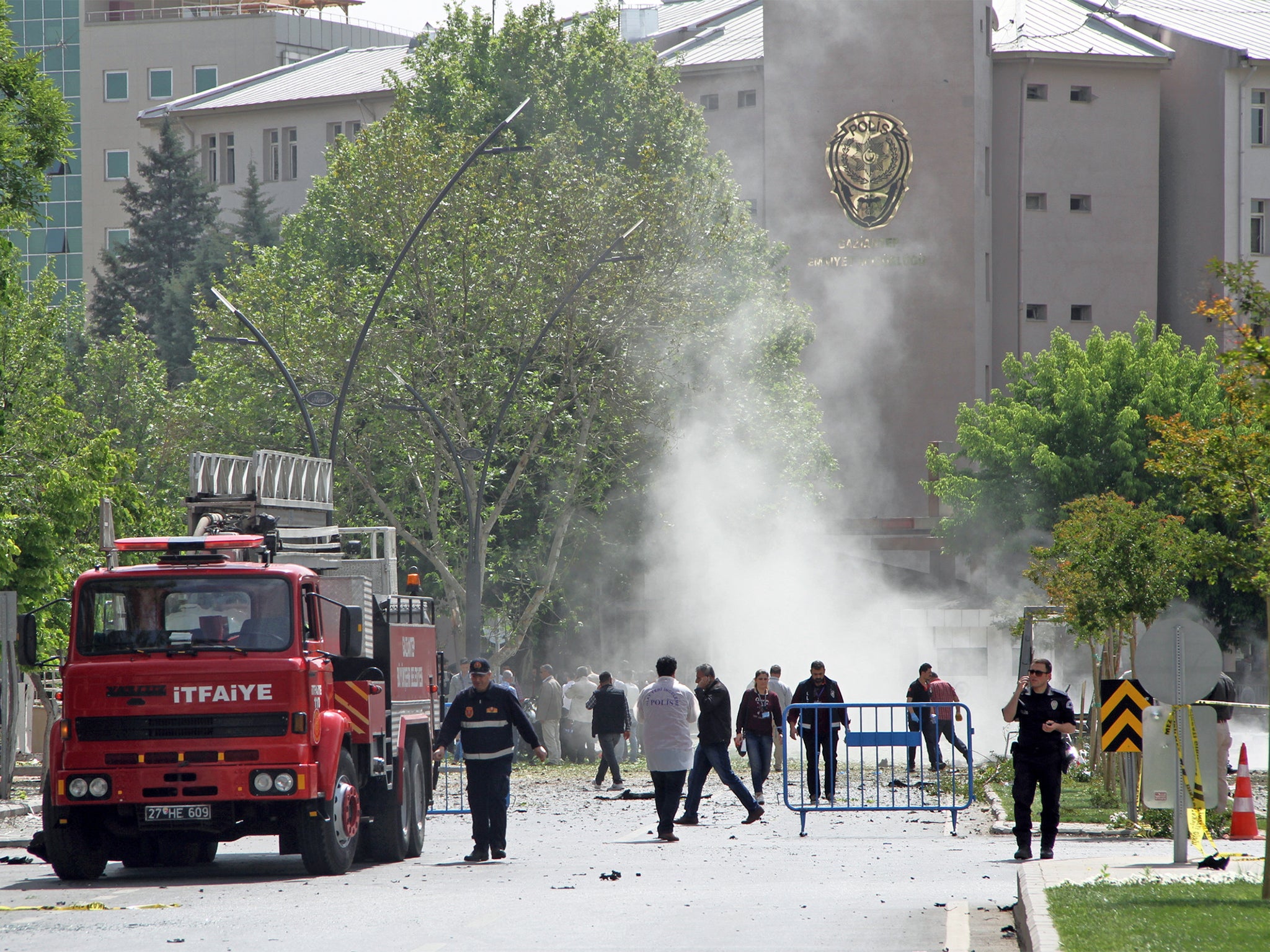
Your support helps us to tell the story
From reproductive rights to climate change to Big Tech, The Independent is on the ground when the story is developing. Whether it's investigating the financials of Elon Musk's pro-Trump PAC or producing our latest documentary, 'The A Word', which shines a light on the American women fighting for reproductive rights, we know how important it is to parse out the facts from the messaging.
At such a critical moment in US history, we need reporters on the ground. Your donation allows us to keep sending journalists to speak to both sides of the story.
The Independent is trusted by Americans across the entire political spectrum. And unlike many other quality news outlets, we choose not to lock Americans out of our reporting and analysis with paywalls. We believe quality journalism should be available to everyone, paid for by those who can afford it.
Your support makes all the difference.“Don’t go to the place where the bombing took place. Go to our tourist places, go to the nice refugee camp,” the deputy governor of Gaziantep requested. “Anyway, our security forces are extraordinarily effective, so the security situation is overall fine, despite what has happened.”
Sitting at the Governor’s Palace, Halil Uyumaz was keen to stress how well Gaziantep was doing. And, indeed, the city and the surrounding region has grown and prospered since we journalists first began to pass through there on the way to cover the Syrian civil war.
The trappings of affluence have been acquired via funds from international aid and the arrival of the Ankara government thanks to Gaziantep’s strategic location – just 30 miles from Syria. But that proximity has also brought deadly violence and refugees; the grim consequences of the bloody strife across the border.
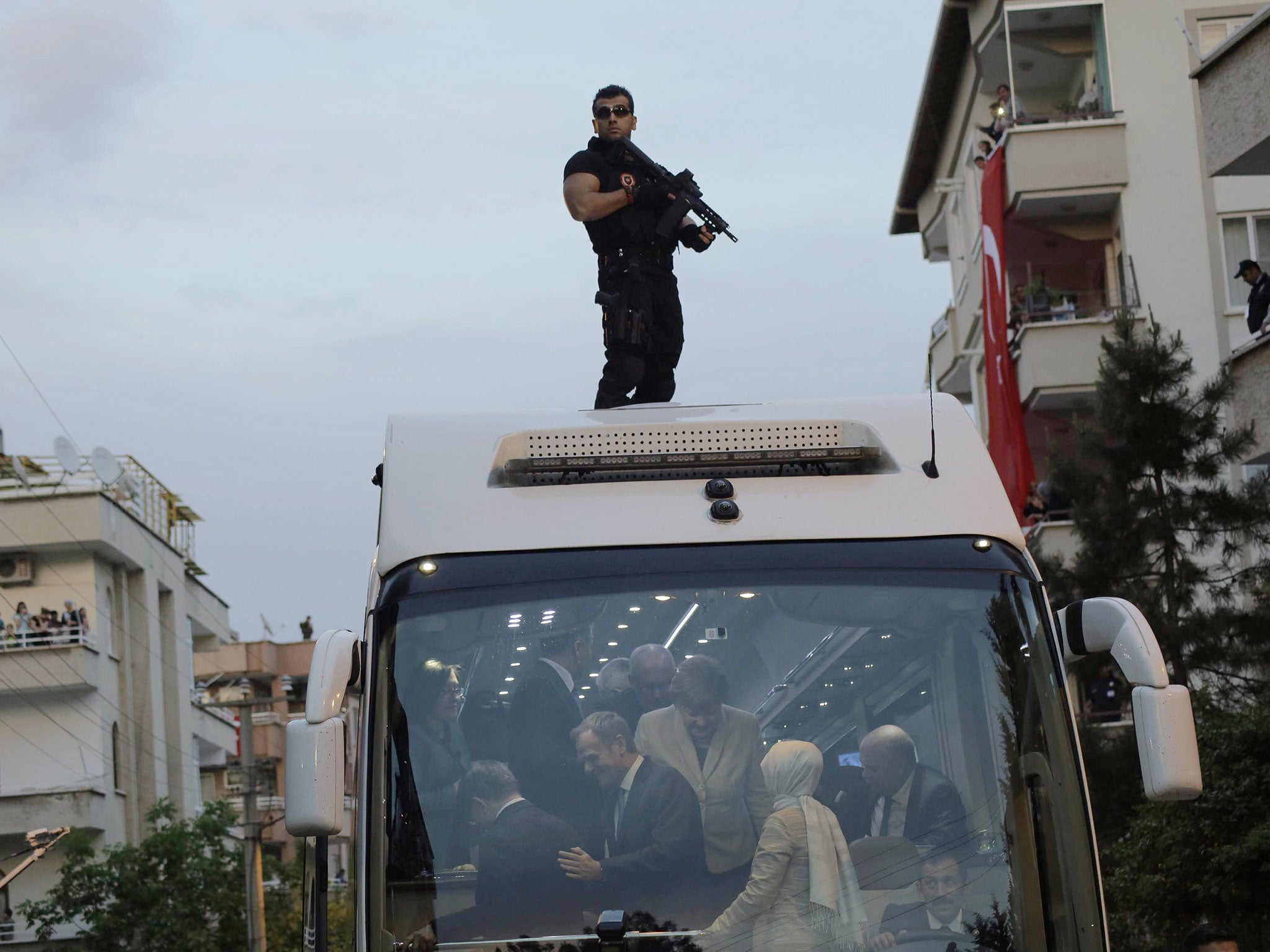
A suicide bombing at Gaziantep’s heavily guarded central police station, two days before Mr Uyumaz spoke last week, claimed the lives of three policemen and injured 22 others. Two days later residents in the neighbouring town of Kilis took out a newspaper advertisement pleading to the Turkish authorities to provide better security against attacks from Syria. “Rockets fall on our houses, shrapnel pieces rain on us, we are being killed in our homes, on the streets,” it said. “We are citizens of the Turkish Republic, we are not subtitles on a news programme.”
Gaziantep and its hinterland is also the main area for the dispossessed – around 2.7 million Syrians and 300,000 Iraqis – that Turkey is hosting and, as such, has come under focus in relation to the European Union refugee agreement. Under the contentious deal, Turkey will take back all the refugees who cross the Aegean Sea to get into Greece, sending, in their place, others who agree to follow legal channels for the journey.
In return, the EU is giving Ankara billions of euros for refugee welfare, and is supposed to offer visa-free travel for Turkish nationals, as well as hastening the process of Turkey joining the EU.
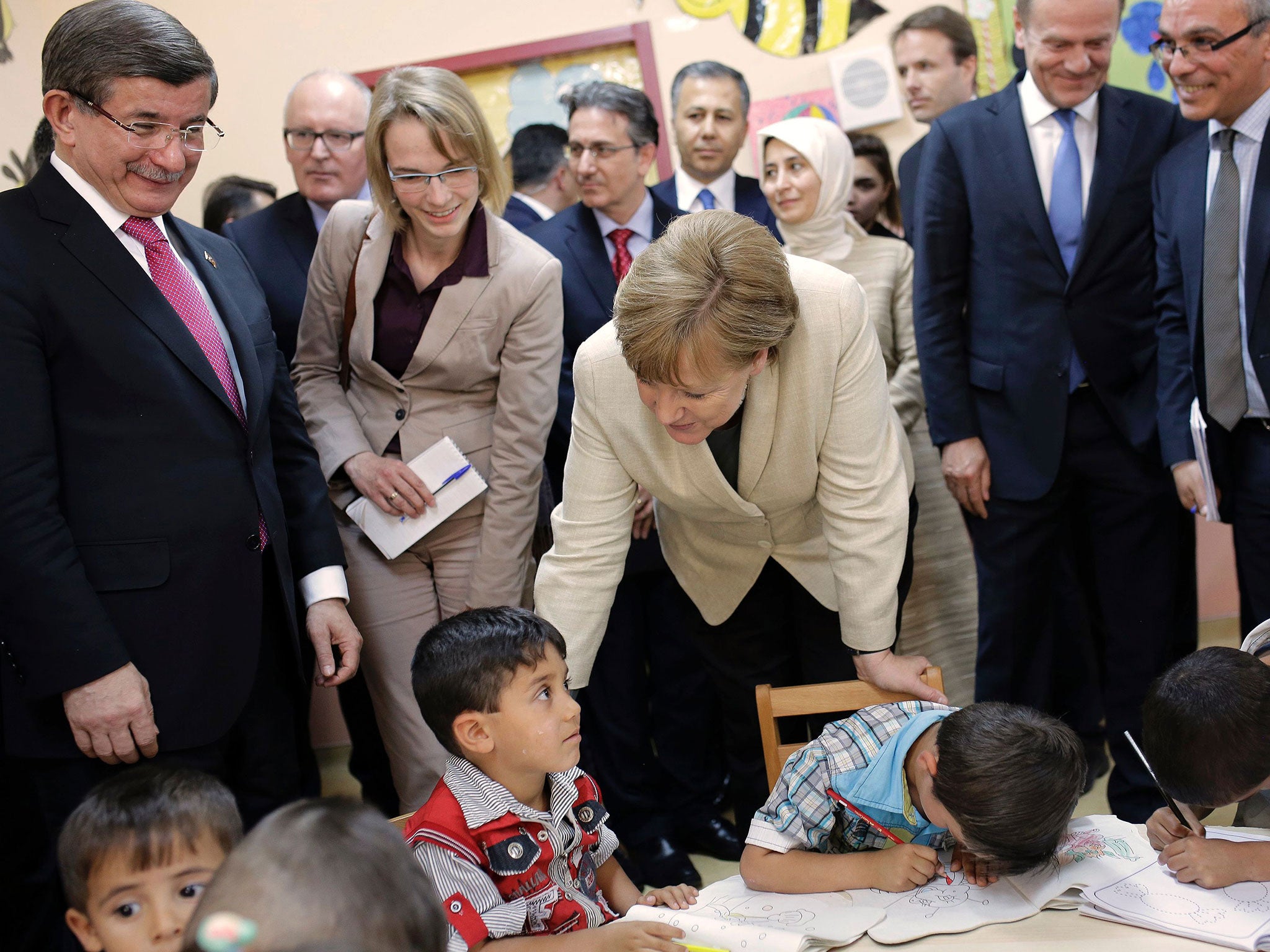
Two weeks ago German Chancellor Angela Merkel and Donald Tusk, the president of the European Council, visited a refugee camp, Nizip, in Gaziantep. Ms Merkel praised Turkey for making the “greatest contribution” to refugees. Ahmet Davutoglu, the Turkish Prime Minister, who was accompanying them, made it clear what Ankara really expected of the EU: “The issue of the visa waiver is vital for Turkey.”
Since then Mr Davutoglu, who brokered the refugee deal with Ms Merkel, has been forced to resign by President Recep Tayyip Erdogan, who has also refused to reform the country’s terrorism laws, one of the key EU stipulation for changing the visa regime. “You go your way, we’ll go ours”, was the President’s blunt message.
The Turks charge the West with ingratitude over its counter-terrorism role. “We are the permanent borders of Nato, nobody seems to give us any credit for that,” complained Murat Salim Esenli, under-secretary at the Turkish foreign ministry. “We are fighting terrorists and this is protecting Europe as well as us.”
But there have been accusations that, in the past, the Turks have helped Syrian Islamist rebels, sometimes by facilitating the transport of weapons funded by the Saudis and the Qataris, and this has been a factor in establishing the extremist presence in Gaziantep and other border areas.
Two prominent Turkish journalists, Can Dundar, the editor of the centre-left Cumhuriyet newspaper, and its Ankara bureau chief, Erdem Gul, have been jailed for five years for publishing a story about weapons, being sent to Syria by Turkish intelligence, being stopped by Turkish military and police. A gunman opened fire at a press conference being given by the journalists following their sentencing last week, injuring one of their colleagues.
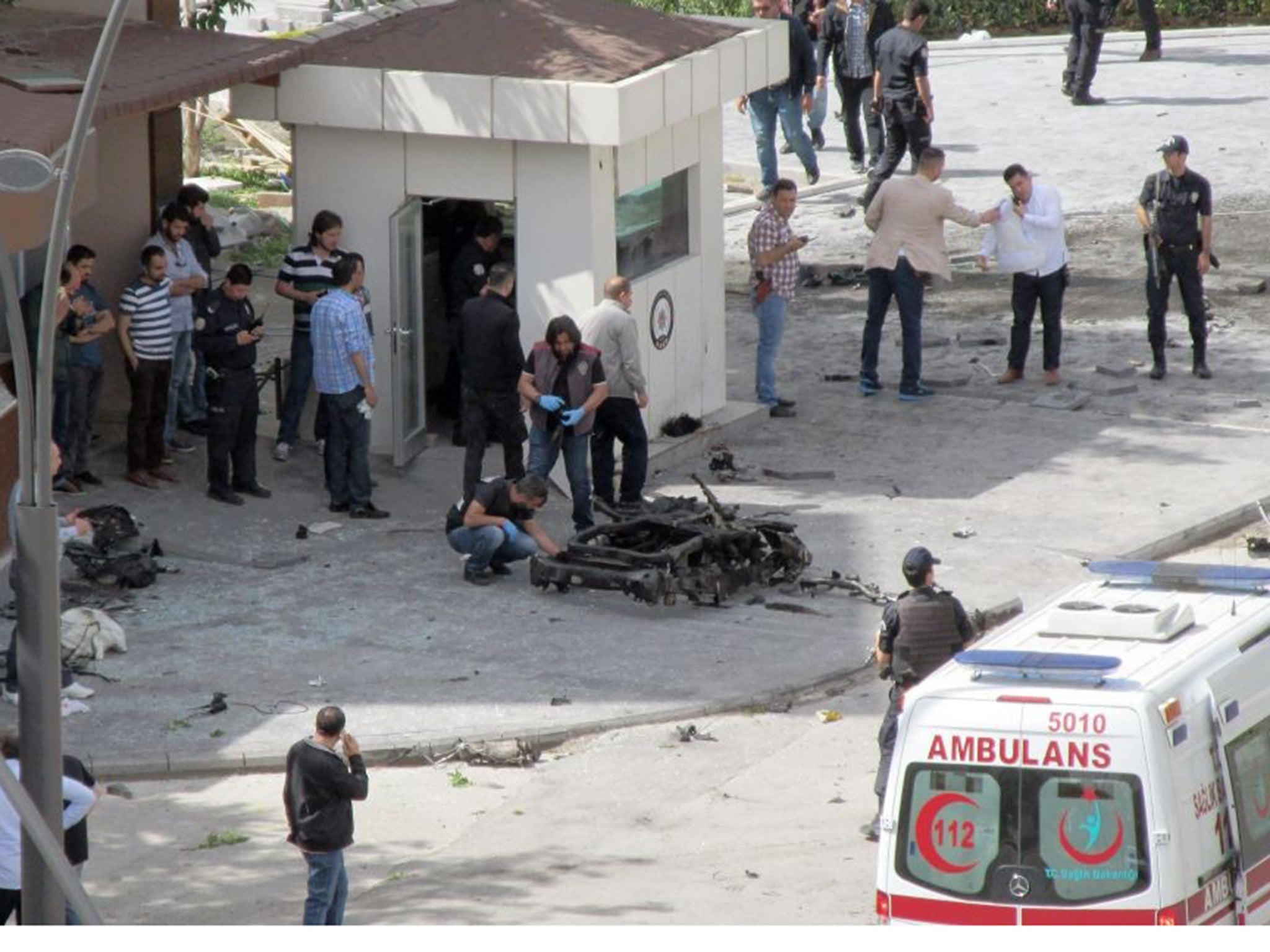
The suicide bomber who carried out the attack on the Gaziantep police station was a Turkish member of Isis, Ismail Gunes, according to security forces who carried out 32 arrests following the blast. At the end of last week, the Turkish military announced that in two separate exchanges it had killed three Isis fighters and injured 11 others as they were trying to cross over from Syria, the latest in a rising series of clashes.
Syrian activists, who led the protests against the regime of President Bashar al-Assad, and had then been targeted by the hardline jihadists who had taken over the revolution, have discovered that fleeing Syria has not brought escape from its violence. Half a dozen of them have been murdered in Turkey by Isis.
The presence of extremists, Turkish and foreign intelligence agencies, and smugglers variously of people, arms, looted historical artefacts, and oil, have made the border towns a place of illicit opportunities and danger.
I first met Yassir al-Aboud when he was a rebel fighter in Aleppo four years ago fighting under a commander, Hajji Marea, a former honey-trader who became leader of the group Liwa al-Tawhid, and died two and half years ago in a Turkish hospital after being injured in a regime air strike in Syria.
Aboud, 36, came to Turkey after being wounded, leaving armed struggle behind because he was disillusioned by infighting among the rebel factions. “There is good money being made here if one has the right connections, but one must be very careful, people may not be who they seem to be. There are so many Syrians here now it is not difficult for dangerous people, killers even, to move around. I am personally very careful, we have all got enemies,” said Aboud at a café where the clientele were almost all Syrians.
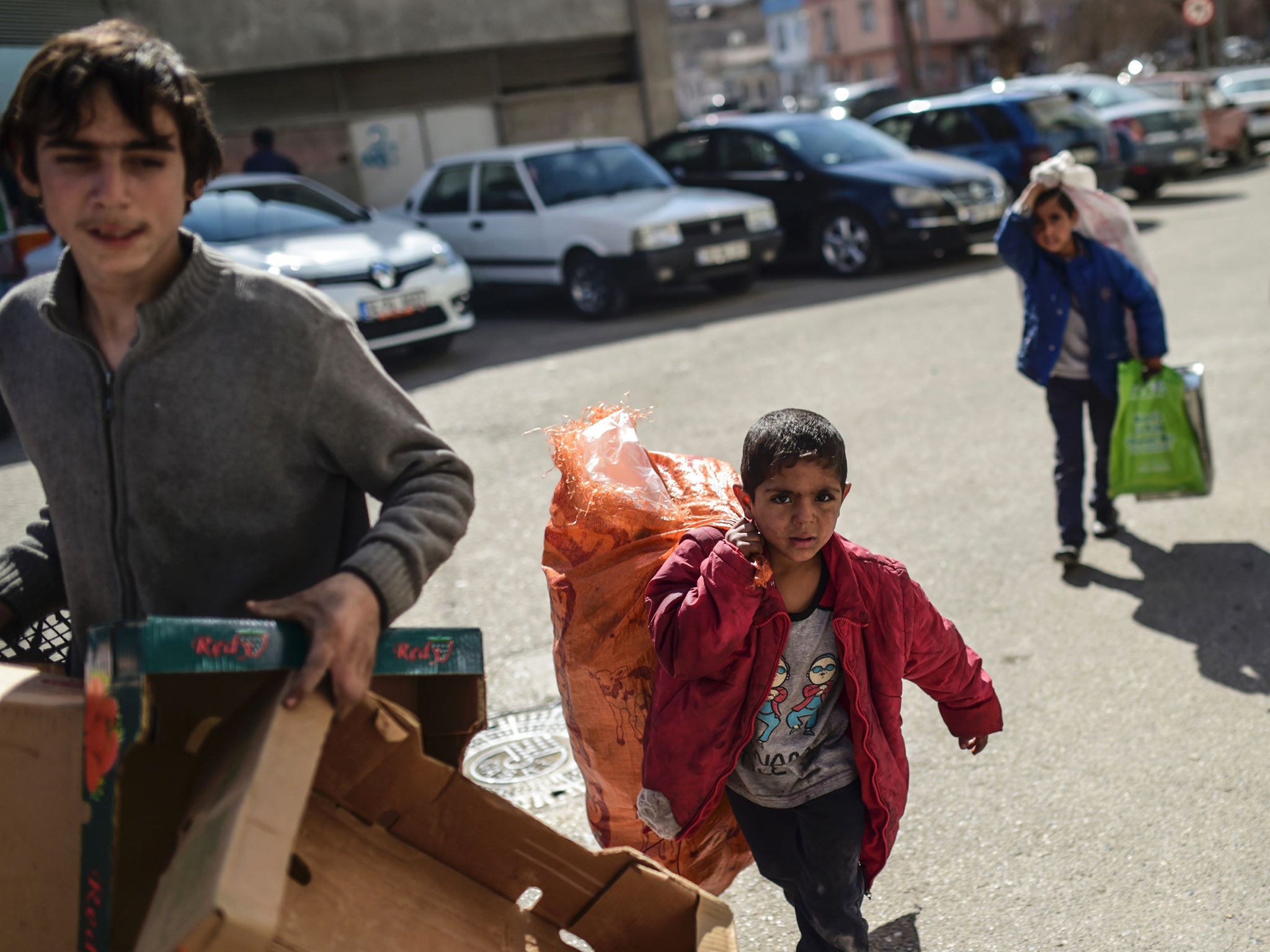
“Most of the Syrians will stay here. Some have gone to Europe; that may become difficult for a while now, but, you know, these smugglers always find new routes. There are still lots of camps of course, but how long will they be kept open?”
There are around 350,000 Syrians in Gaziantep: around 200,000 of them live outside the camps. Under Turkish law, Syrians cannot total more than 10 per cent of an employer’s workforce and finding employment is not easy. Abdulhamid Khoury, a friend of Aboud, looks after his family of six through casual building work and charity donations. “I haven’t got connections like Yassir, so it’s hard work. There is nothing left over for extras, so it’s hard, but I don’t want to stay in a camp,” he said. “We are more in control of our lives outside.”
One needs the permission of the authorities to go into the camps. I was taken to Nizip, the place where Ms Merkel and Mr Tusk were recent visitors, a complex projected by authorities as very much a showpiece. Comprised largely of containers, it appears to be well run, with schools, shops and basic medical facilities. Two families produced for interviews by officials maintained everything was “excellent”. They had no intention of going to Europe, they insisted, because things will not be so good there.
But away from the crowd, Hassan Ismail intimated his plans to go to Germany. “I must keep trying for that. There is nothing left for my family to go back to in Syria, as you know”, he said. “We don’t want our children growing up in camps, a generation growing up in camps. We don’t want to end up like the Palestinians.”
Subscribe to Independent Premium to bookmark this article
Want to bookmark your favourite articles and stories to read or reference later? Start your Independent Premium subscription today.
Join our commenting forum
Join thought-provoking conversations, follow other Independent readers and see their replies
Comments